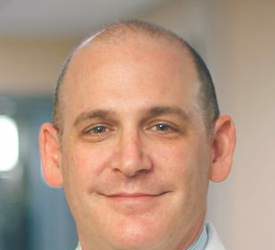EXPERT ANALYSIS FROM THE WORLD STI & HIV CONGRESS 2015
BRISBANE, AUSTRALIA (FRONTLINE MEDICAL NEWS) – Individuals with acute HIV infection should be treated immediately to limit immunological damage and reduce their heightened risk of transmission, Dr. Myron Cohen said at the World STI & HIV Congress 2015.
Acute HIV infection has both individual and public health consequences, he said.
“The notion that universal test and treat doesn’t apply to people who come in with fever and headache and new infection, I do not believe is appropriate,” said Dr. Cohen, associate vice chancellor for global health at the University of North Carolina, Chapel Hill. “I can’t tell you how painful it has been over the last 10 years to try to explain to people that it doesn’t make sense not to treat people immediately.”
In acute HIV infection, there is a window of time during which the virus is replicating in tissues but is not yet in the blood, so individuals would be HIV-antibody negative but HIV-RNA positive, according to Dr. Cohen.
This acute period is a time when the virus achieves as high a concentration as will ever be reached over the course of infection – sometimes as high as five million copies of the virus.
“During the course of acute infection, three problems are going to be important,” he said. “Transmission risk is very high as the variant wants to go to the next person. All the compartments in the body are seeded including the brain and the genital tract and so we have to start worrying about central nervous system disease. And latency occurs, so the virus integrates into the host genetic material.”
From an immunological perspective, research suggests that patients’ CD4 cell counts never quite recover from this early viremia, leading to irreparable damage to the immune system, he noted.
Dr. Cohen said that treating acute infection with antiretroviral drugs also reduced the latent pool of the virus. “The focus on a cure [for HIV infection] will probably initially focus on people treated during acute infection because the latent pool is smallest, and that’s our best chance,” he said.
This effect is already being demonstrated in patients who receive early antiretroviral therapy and are able to go off therapy for long periods of time without the virus rebounding.
There also are significant public health implications in treating or not treating people with acute infection, Dr. Cohen said, citing studies suggesting a significant proportion of new infections can be attributed to an index patient with acute infection.
Treating acute infection could therefore act as a “cluster buster,” he said.
Describing his position as controversial, Dr. Cohen said there has been debate over whether resources could, or should, be spent identifying individuals in the seroconversion phase of infection.
“Sensitizing people to recognizing acute infection is the next step,” he said in an interview, pointing out that current rapid point-of-care tests were not as effective in detecting acute infection.
“A person whose lifestyle appears to put them at risk, with a fever and a headache … anytime you’re looking at mono or any other viruses, do an HIV test and if it’s positive you treat them.”
Dr. Cohen reported having no financial disclosures.




